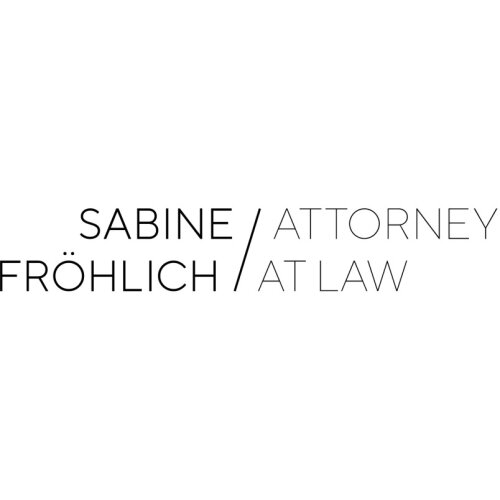Best Climate Change Law Lawyers in Liechtenstein
Share your needs with us, get contacted by law firms.
Free. Takes 2 min.
Or refine your search by selecting a city:
List of the best lawyers in Liechtenstein
About Climate Change Law in Liechtenstein
Climate Change Law in Liechtenstein refers to the body of national and international legal measures designed to address and manage the risks and consequences of climate change. As a member of the European Economic Area and a signatory to major international climate agreements like the Paris Agreement, Liechtenstein is committed to incorporating modern environmental standards into its legal system. This area of law governs how individuals, businesses, and government bodies must act to reduce greenhouse gas emissions, promote renewable energy, enhance energy efficiency, and adapt to climate impacts within Liechtenstein’s territory.
Why You May Need a Lawyer
There are various situations where individuals, businesses, or organizations in Liechtenstein might need specialized legal advice concerning Climate Change Law. Some common scenarios include:
- Understanding your obligations under national and EU climate regulations
- Ensuring compliance with emissions limits for factories, buildings, or infrastructure projects
- Dealing with permits for renewable energy installations
- Responding to penalties for non-compliance with energy efficiency or environmental protection rules
- Drafting contracts tied to sustainability initiatives, carbon trading, or green investments
- Engaging in project development where environmental impact assessments are required
- Advocating for new climate policies or contesting decisions by authorities
A lawyer who specializes in Climate Change Law ensures that your actions align with local, international, and European standards and helps avoid legal risks or penalties.
Local Laws Overview
Liechtenstein has integrated several international climate change frameworks into its domestic law. Key areas include:
- Environmental Protection Act (Umweltschutzgesetz): Sets out obligations for pollution control, emissions reduction, and sustainable resource management.
- Energy Act: Governs energy efficiency standards, access to renewable energy, and related infrastructure policies in line with EU directives.
- CO2 Act: Implements measures for greenhouse gas reductions, climate neutrality targets, and carbon taxation or incentives.
- International agreements: Liechtenstein’s laws align with the Paris Agreement, Kyoto Protocol, and EEA standards to meet reduction commitments.
- Permitting and Environmental Impact Assessment: Any major development must assess and mitigate its climate impact per national and EEA law.
Enforcement is typically handled by the Office of the Environment, supported by other governmental agencies that oversee buildings, transportation, and industrial sectors.
Frequently Asked Questions
What is the main legal framework governing climate change in Liechtenstein?
The core legal frameworks include the Environmental Protection Act, the Energy Act, and the CO2 Act, all of which incorporate requirements from EU and international agreements.
Who enforces climate change laws in Liechtenstein?
The Office of the Environment is responsible for enforcing climate change laws, sometimes in cooperation with other regulatory authorities.
Do businesses need special permits for emissions?
Yes, certain activities that produce greenhouse gas emissions require environmental permits, and operators must comply with emission limits and reporting obligations.
Are there penalties for violating climate laws?
Yes, there are financial penalties, administrative actions, and potentially criminal charges for serious violations of environmental and climate change-related laws.
What renewable energy incentives exist in Liechtenstein?
There are incentives and grants available for renewable energy installations, energy-efficient renovations, and investments in sustainable technologies.
How does Liechtenstein implement the Paris Agreement?
Implementation occurs through national laws and policies that mandate greenhouse gas reductions, energy efficiency, and reporting, coordinated with the European Economic Area.
Do individuals have obligations under climate change law?
While the primary obligations fall on businesses and the state, individuals may also face rules relating to heating systems, construction standards, and vehicle emissions.
Can I contest a government decision about a climate-related permit?
Yes, there are legal avenues for administrative appeals and court proceedings if you believe a decision was incorrect or violated your rights.
Are environmental impact assessments mandatory?
Yes, for certain large-scale projects or developments, environmental and climate impact assessments are required by law before permits are issued.
How are Swiss and EEA laws relevant in Liechtenstein?
Liechtenstein aligns its climate change regulations closely with Swiss and EEA laws to ensure cross-border consistency and fulfill international commitments.
Additional Resources
If you seek more information or guidance on Climate Change Law in Liechtenstein, consider these resources:
- Office of the Environment (Amt für Umwelt): The main governmental body for environmental permits, regulations, and policy information
- Ministry of Infrastructure, Economic Affairs and Sport: Responsible for implementing energy and environmental policy
- Chamber of Lawyers of Liechtenstein: Source for finding qualified environmental and climate law specialists
- International organizations such as the United Nations Framework Convention on Climate Change (UNFCCC) or European Commission Directorate-General Climate Action
- Local environmental NGOs and advocacy groups that offer information and support concerning climate initiatives
Next Steps
If you believe you require legal assistance in Climate Change Law, consider the following steps:
- Identify and outline your legal issue, collecting all relevant documents and correspondence
- Research and contact a qualified local lawyer who specializes in environmental or climate law
- Schedule a consultation to discuss your situation and clarify your legal obligations or rights
- Follow your lawyer’s advice regarding compliance, permit applications, dispute resolution, or litigation if needed
- Stay updated on changes to local and international climate change laws that may affect you or your business practice
By taking prompt and informed action, you can safeguard your interests and contribute to Liechtenstein’s progress in combating climate change in line with national and global standards.
Lawzana helps you find the best lawyers and law firms in Liechtenstein through a curated and pre-screened list of qualified legal professionals. Our platform offers rankings and detailed profiles of attorneys and law firms, allowing you to compare based on practice areas, including Climate Change Law, experience, and client feedback.
Each profile includes a description of the firm's areas of practice, client reviews, team members and partners, year of establishment, spoken languages, office locations, contact information, social media presence, and any published articles or resources. Most firms on our platform speak English and are experienced in both local and international legal matters.
Get a quote from top-rated law firms in Liechtenstein — quickly, securely, and without unnecessary hassle.
Disclaimer:
The information provided on this page is for general informational purposes only and does not constitute legal advice. While we strive to ensure the accuracy and relevance of the content, legal information may change over time, and interpretations of the law can vary. You should always consult with a qualified legal professional for advice specific to your situation.
We disclaim all liability for actions taken or not taken based on the content of this page. If you believe any information is incorrect or outdated, please contact us, and we will review and update it where appropriate.
Browse climate change law law firms by city in Liechtenstein
Refine your search by selecting a city.

















